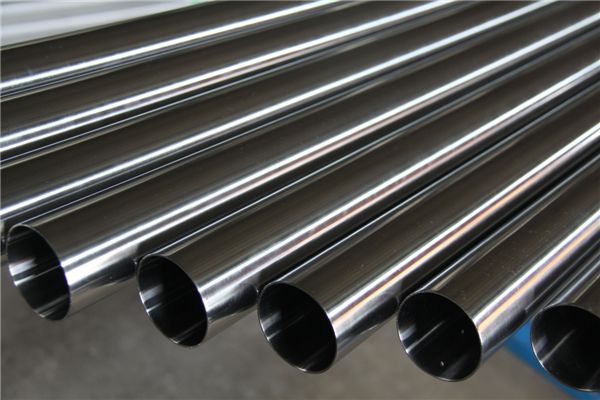Oil production mastering initiated by Russian oil industrial companies on marine shelf is a well-known fact,
which is currently supported with Caspian shelf projects and intensification of work projects. It is worth mentioning
about construction, in particular, re-equipment of floating boring station for "Prirazlomnaya" deposits.
The complex of engineering structures for the development of offshore oil and gas deposits includes isolated
stationary or floating units (platforms) with the weight of up to 300 thousand tons, downhole equipment, sea-floor
equipment with the weight of up to 1500-2000 tons, cable systems for hole remote control, flexible pipe lines with
suspension and counterbalancing systems, large-section transport underwater pipelines, ships for pipe laying,
oil tankers, coastal equipment and other types of equipment.
There is every prerequisite for the successful application of Nickel alloys in the following systems and equipment
for oil and gas offshore deposits development: deep-water drilling risers; casing tubes; producing risers; pumps
and systems of sea water, drinking water, drilling water and associated water; tubings for process solutions circulation
systems; liquid separators, heat exchanging equipment of various designations; high-pressure vessels; high-strength
flexible braces for platform fastening.
Operating conditions of oil-field equipment are basically similar to operating conditions of ship-building articles, hence,
the following significant differences can be specified: higher salt load of brine water; presence of hydrogen sulphide and
carbon-dioxide gas in the operating media; presence of aerobic and anaerobic (in particular, sulphide generating components)
components in the extracted products and in the environment; elevated temperatures of operating media; low atmosphere
temperatures up to - 40-50С; possible salt and wax deposits on the surfaces; high pressure of operating media; presence of
abrasive components in the transported products.
The most extensive experience in Nickel alloys application in the offshore industry has been gained by Norway and Great Britain.
Alloyed stainless steels have been used in the offshore industry in the North Sea for more than 30 years (Norwegian and British Sector).
Nevertheless, corrosion damages were revealed for high-alloy steels, for e.g. intergranular corrosion is typical for steel with nickel content
of 5,5% in a number of process media and corrosion cracking is typical in the chloride medium at the temperature of 100 °С; crevice
corrosion is typical for steel with nickel content of 25% causing seal failure of flanges after two years' service (Oseberg A and Gullfaks A platforms).
At the same time titanium being used for different applications exhibited its unique resistance to the most or if not to all types of corrosion from which
it had to be suffered during the development of sea oil deposits.
The first well-known application of Nickel alloy for the basic equipment designated for oil production on the marine shelf is the application of Nickel
in load-bearing joints of producing riser by Placid Oil Company on Green Canyon platform in the Gulf of Mexican (Manufacturer - Cameron Iron Works Inc).
Loterios Company supplied 4 caissons (distributing main line) for the fire system. The inside diameter of the caisson is 900 mm, 20/40 mm wall thickness,
total length - 34 meters, weight - 10 t. Heat exchangers of titanium alloys produced in Japan are used on Steel Head platform (Alaska shelf).
The first experience of Nickel alloys application for Norwegian Units Floating Drilling Units dates back to the year 1986 when Mobil Exploration Norway Inc.
decided to use Nickel instead of steel for the ballast water system of Statfjord A platform (Norway). Service life was 5 years and 6 months. During
subsequent years similar substitution was conducted for Statfjord B and Statfjord C platform after 3-4 years' operation of steel structures.
300 and 400 tons, of Nickel , respectively, are used for Heidran and Troll platforms having been commissioned in 1994-1995. Estimated service life of
Troll platform is 70 years and this choice shows that at last reasonable relations between the service life of platforms (deposit) and the service life of the
equipment for these platforms can be established.
As deeper-water systems of sea oil production are being built the need for Nickel alloys application for subsea equipment fabrication have drastically
increased. So, the majority of companies predict that the depths level of up to 2.5 km will have been reached by 2010. At that the significance of Nickel
application will be enhanced on account of the three major reasons:
- For a number of subsea equipment components application of alloys with high specific strength and low modulus of elasticity is required;
- Saving in weight is required for the equipment used on the platform. Based on the data given by Shell Oil Company, weight reduction of the subsea
equipment by 1 ton allows reducing the weight of the support equipment by 3 tons that is equal to saving of approximately 150 thousand dollars. Each
excess pound of the equipment on the platform deck or on the producing ship comes to $6.5;
- Nickel and its alloys possess reliability, including high corrosion resistance in seawater and operating media in the course of oil production.



